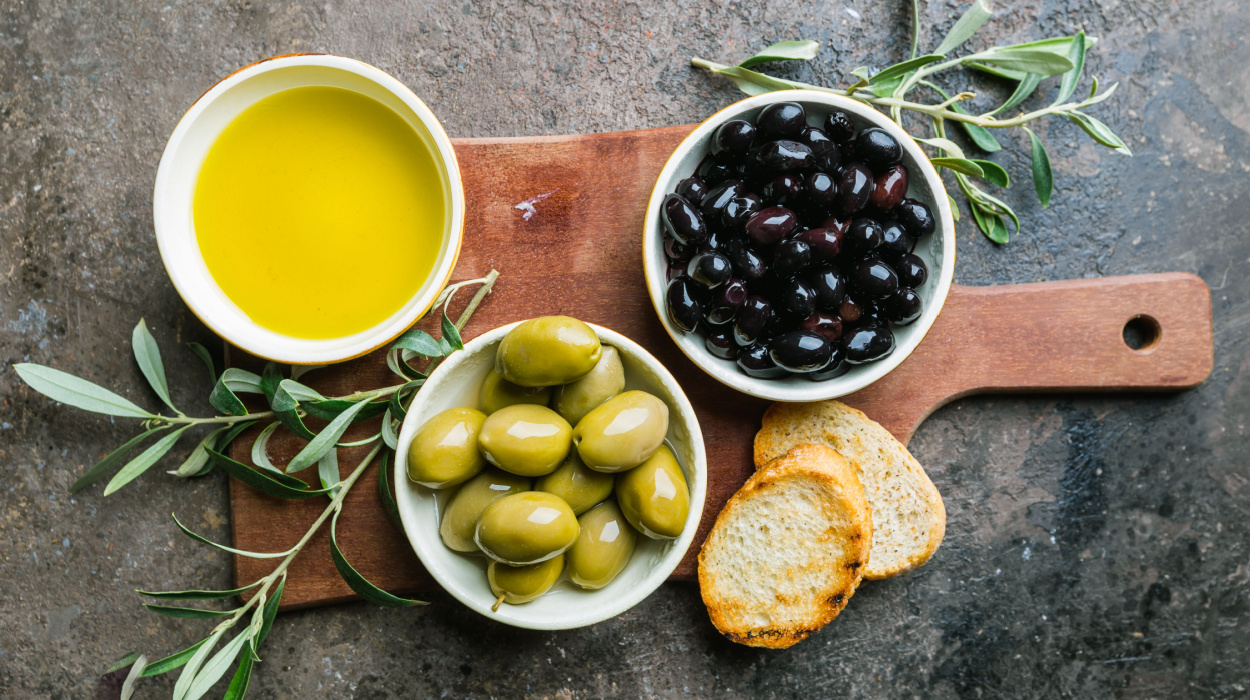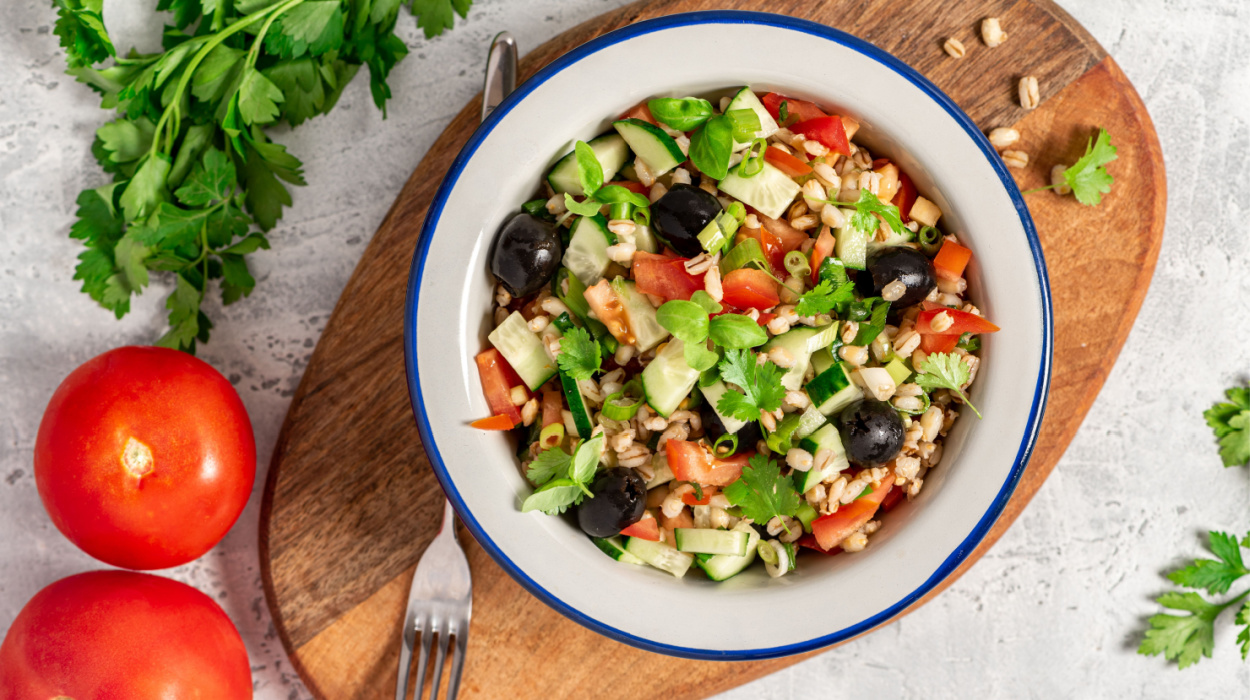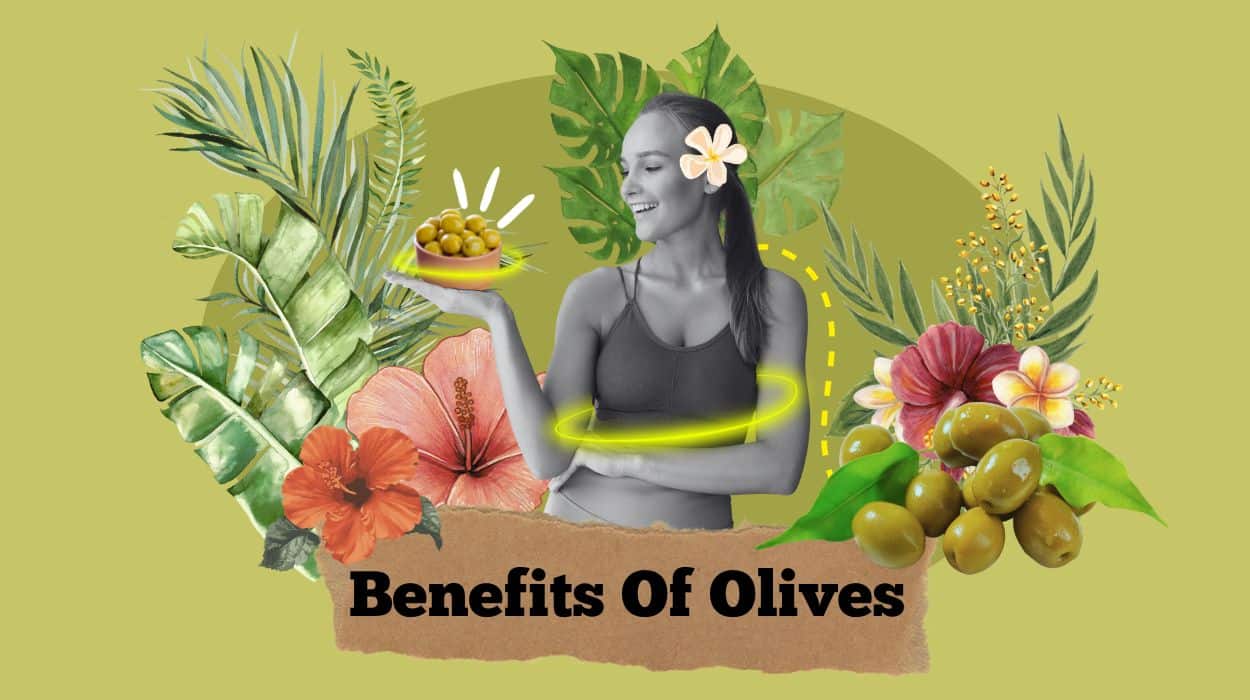Are olives good for you? Olives have existed for many years, providing people with numerous health benefits. They are commonly found in several parts of the world and are mainly used in Mediterranean cuisines. Since olives are considered healthy fats and a source of dietary fiber, health practitioners often recommend them in meals. Interestingly, they are also a rich source of vitamins and minerals, especially vitamin E, copper, and iron.
Olives are often recommended as one of the best testosterone-boosting foods. This is because they contain polyphenols, which can help combat stress that could affect the body’s hormones. According to research,[1] olives can help protect against cardiovascular-related diseases and strengthen the heart against cancer, high blood pressure, and diabetes.
Unfortunately, heart-related diseases are becoming more popular in society, so the importance of olives in our diets cannot be overemphasized. Thus, this article contains detailed information about olives, recommended proportions, and how to use them in meals.
The Best Olives Benefits To Know
Below is a highlight of the benefits of olives:
- Improves heart health
- Improves skin condition
- Regulates appetite control
- Some olives are rich in probiotics
Heath Benefits Of Olives

Considering the several health benefits of olives, they are essential in creating a healthy meal plan, boosting the immune system, and strengthening muscles. The oxidants present in olives can help osteoporosis patients recover from weak bones. Below are other benefits of olives that may interest you.
Improve Heart Health
A report has shown that olives play a massive role in eradicating heart-related diseases, especially the extra-virgin varieties. Compared to saturated fats, a study revealed that monounsaturated foods like olives do not threaten heart disease. It was discovered that consumers of the traditional Mediterranean diet had lower death cases than coronary-risk places like the Netherlands, Greece, and Italy.
Improves Skin Condition
Olives are highly recommended for individuals who desire smooth and healthy-looking skin. Since they contain Vitamin E, antioxidants, and Vitamin A, olives can stop radicals that cause skin diseases. Olives are also ideal for forming new blood capillaries for healthy hair. Alongside olives, you should consider the health benefits of tomatoes. Combining olives and tomatoes is protective enough to keep the skin moisturized.
Regulates Appetite Control
The monounsaturated fats acid in olives is ideal for regulating appetite control in an individual. Taking olives before a heavy meal can help slow digestion by stimulating the cholecystokinin hormone. Thus, one of the common benefits of olives[2] is weight loss. This is because the hormone stimulated by olive will signal meal satisfaction to the brain, causing a person to consume less than usual.
Olives Are Rich In Probiotics
Probiotics are good bacteria that are produced during the fermentation process of olives. Since some olives, such as table olives, are often fermented, they can be used in the gut-healthy protocol. However, these only apply to live-culture olives and not the canned version. You may ask an expert doctor, scientist, or nutritionist for the best recommendation.
Olives Nutritional Profile
It is a healthy fruit that is commonly used in cooking and salads. They can also be processed into olive oil for more cooking varieties. Olive’s nutritional profile[3] per 100 gram include the following:
- Calories: 116 kcal
- Protein: 0.84g
- Carbohydrate: 6.04g
- Sugar: 0g
- Fiber: 1.6g
- Fat: Saturated (2.3g), Monounsaturated (7.7g), and Polyunsaturated (0.6g)
- Minerals and Vitamins
Other Plant Compounds
- Oleuropein
- Hydroxytyrosol
- Tyrosol
- Oleanolic acid
- Quercetin
- Oleic acid
Olives are nutritious foods that should be present in healthy diets. However, it’s important to consume them in moderation, considering the high-calorie content.[4]
How To Eat Olives More
Olives are versatile and can be used in various ways, enhancing their benefits. However, following the government packaging and labeling standard is essential to ensure consumers’ safety. You can implement the following processes to spice up your meal as a consumer.
Add Them To Salads

Adding any of your favorite olives to a salad will increase the energy present in your meal. You can consume olives with pasta or seasonal salads. More interestingly, it will help reduce the rate of high blood pressure when used with onions, tomatoes, cheese, and even tuna. Search and combine the best high blood pressure supplements in your meal plan for more effective results.
Use As Appetizer
Olives can be used as an appetizer on any occasion or event. They can be used as food or for decoration. Whatever the case, olives will surely spice up your party. Serving olives as finger foods or snacks is an excellent way to promote healthy eating among your guests.
Use As Flavor
Research conducted by the National Library of Medicine revealed[5] that olives have flavoring properties. They contain flavonoids and different secondary metabolites, which give food a unique taste. This is why olives are usually pronounced, whether you serve them as a side dish or not.
Olive Pizza
Do you know you can still consume pizza without depending on excess calories? Among several other benefits of olives, their role in reducing calorie consumption is life-saving. Adding canned olives to your pizza will also provide more iron, vitamins, and exceptional taste.
How Much Is Too Much Olives?
Even though olives are considered a healthier option than unsaturated fats, excessive consumption could put the body at risk. According to research,[6] 20-30% of calories should be obtained from monounsaturated and polyunsaturated fats. Thus, consume about 4 ml of olive oil daily, which has proven to help curb constipation.
The ideal daily consumption depends on several health factors. For instance, women who consumed over 20 ml of olive oil daily were discovered[7] to develop high bone density. Thus, it’s highly recommended to consult an expert health practitioner for the best dosage. Is there any side effect of not following a nutritionist or doctor’s advice?
Consuming excess olives may lead to weight gain. Even though high-calorie intake may result from other unhealthy lifestyles, olive oil may also contribute to the calorie level. More so, olive oils should not be used as a replacement for whole foods.
Conclusion
The benefits of olives outshine the side effects. This implies that consuming olives daily poses no threat, except if you are allergic to them. In this case, you want to look for healthy alternatives such as the high-pressure supplement recommended above. Additionally, ensure your foods are contaminant-free when olives are used in food preparation. This will help in utilizing olives’ benefits to the maximum.
Frequently Asked Questions
You can drink olive, but make sure it’s in a minimal amount. Since olives are high in sodium, they may not be pleasant when consumed as a drink. Its high fiber content is also a concern for the digestive system. Thus, consuming olives from processed beverages or juice is highly recommended.
Studies have shown olives prevent the growth of cancerous cells, but they can’t be used as a standalone in curing cancer. Cancer treatment requires utmost attention, which usually includes food choices. In this case, a doctor may recommend a specific daily dosage of olive. You may also have other healthy foods, such as fruits and vegetables.
Factors such as age, weight, gender, and activity level, may influence the appropriate ml of olive for you. Nevertheless, most health associations recommend not more than 30 ml (2 tablespoons) of olives daily. Thus, the best practice of a balanced diet is to consume nutrients in moderate proportions.
Olive is versatile and can be used in several cooking recipes. You may also use it for cooking at high temperatures, such as sautéing. However, olive is not the best option for frying. Some other use cases of olive are salad dressings and marinades.
As mentioned earlier, olives may lead to weight loss or allergic reactions. However, olive trees are safe for many people, especially when consumed in moderate proportion.
Olive provides energy due to the presence of monounsaturated fatty acids. Overall, the presence of anti-inflammatory compounds and the antioxidants olives helps to improve one’s general well-being.
In most cases, olives’ preferences are based on personal tastes. Meanwhile, green olives are the most common type, usually eaten as snacks or side dishes. Some popular varieties of olives used for cooking include Koroneiki, Picual, and Arbequina.
The high polyphenols and vitamin E are mainly responsible for glowing skin. These oxidatives also help to suppress premature aging and wrinkles. However, add more effort, such as protecting yourself from the sun, for maximum effect.
 Expert's opinion
Expert's opinion
